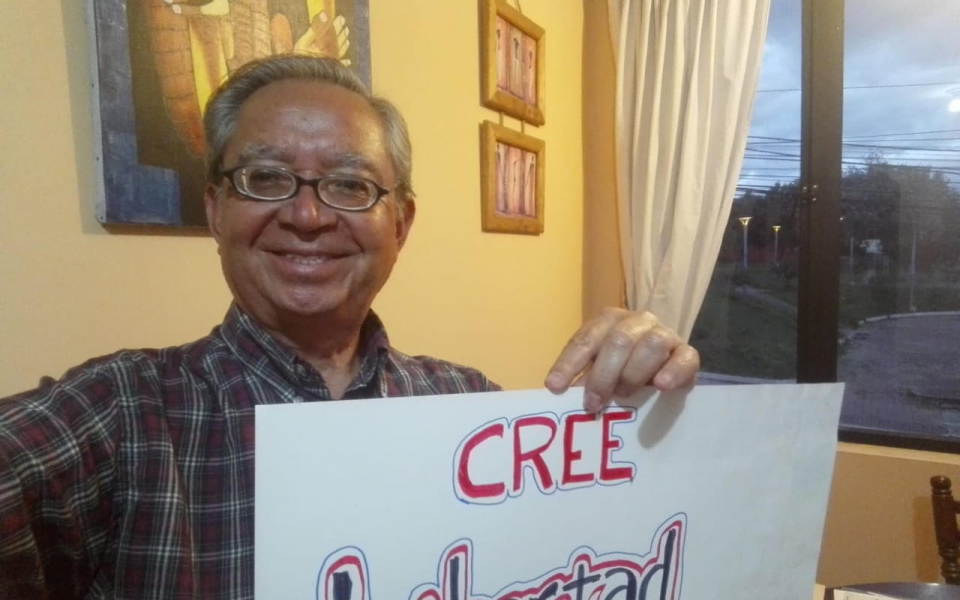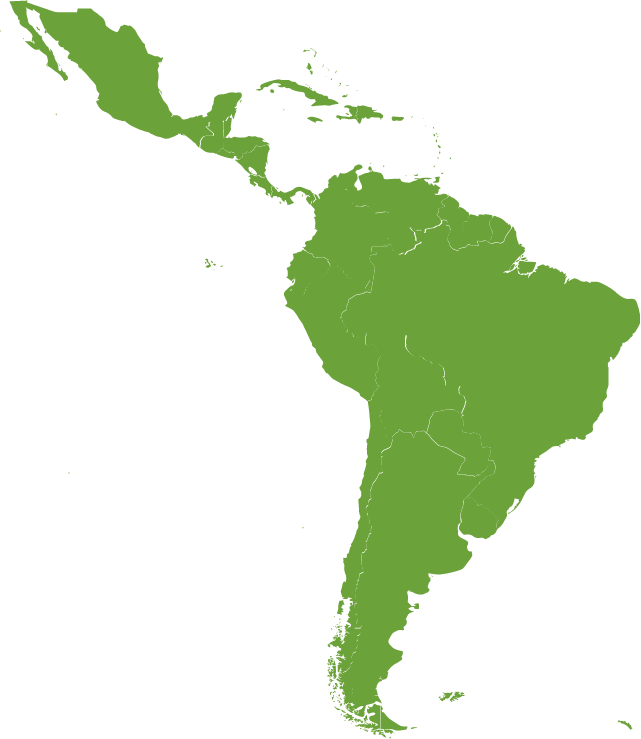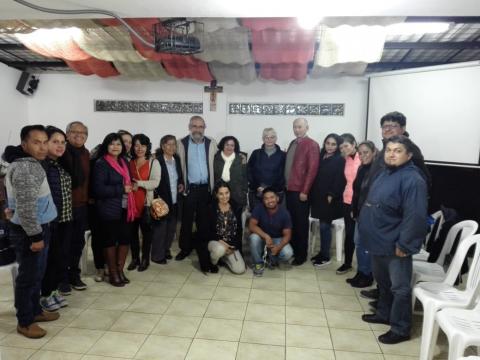
I was in one of the most beautiful places in Quito, Ecuador, which is the Nueva Vida Camp, a space in the small town of La Merced, one hour from the capital. It is a green space, with a lagoon, forests, trails, cabins, swimming pool, soccer fields, basketball and volleyball. It is my favorite place to meditate, read, walk, listen to birdsong, and write. I was occupied with this task when a young woman who was participating in a spiritual retreat from a religious group approached me and asked me: "What do you understand by spirituality? And what should spirituality be like for this time?" We had a pleasant chat that lasted an hour, and here I share the conclusions. And I thank that young woman who made me think about this subject so necessarily for this time.
In its original sense, spirit, where the word spirituality comes from, is the quality of every being that breathes. Therefore it is every living being, like the human being, the animal and the plant. But not only that; the entire Earth and the entire universe are experienced as spirit-bearers, because from them comes life. They provide all the elements for life and maintain the creative and organizing movement.
Spirituality is the attitude that puts life at the center, that defends and promotes life against all mechanisms of decline, stagnation and death.
In this sense, the opposite of spirit is not body, but death, taken in its broad sense of biological, social, and existential death. Nurturing spirituality means being open to everything that is life-bearing, cultivating the space of inner experience from which all things are linked and religated, overcoming the watertight compartments, grasping the whole and experiencing realities as values, evocations and symbols of a deeper dimension. The spiritual man/woman is the one who always perceives the other side of reality, capable of grasping the depth that is revealed and veils in all things, and who manages to glimpse the relationship of everything with the Ultimate Reality.
Spirituality starts not from power, nor from accumulation, nor from interest, nor from instrumental reason; it starts from emotional, sacramental and symbolic reason. It is born from the gratuitousness of the world, from the inclusive relationship, from the deep commotion, from the communion movement that all things maintain among themselves, from the perception of the great cosmic organism soaked in traces and signs of a higher and more recent reality.
Today, we only reach this stage through a severe critique of the paradigm of modernity, based on analytical reason at the service of the will to power over others and over nature.
We need to overcome it and incorporate it into a larger whole. The ecological crisis reveals the crisis of fundamental meaning of our system of life, of our way of society and of development.
We cannot continue to rely on power as domain and on the irresponsible voracity of nature and people.
We cannot continue pretending to be above the things of the universe, but we are next to them and in favor of them. Development must be with nature and not against nature. What must be globalized today is not so much capital, the market, science and technology; what should fundamentally be more globalized is solidarity with all beings beginning with the most affected, the ardent valorization of life in all its forms, participation in response to the call of each human being and to the dynamics of the universe, the veneration of the nature of which we are part, and responsible party. Starting from this density of being, we can and must assimilate science and technology as ways of guaranteeing having, of maintaining or remaking ecological balances, and of satisfying our needs fairly enough.
Ecology is now at the center of discussions and concerns. From a regional discourse, as a subchapter of biology, it has now become a universal discourse, perhaps the one with the greatest mobilizing force of the third millennium.
The current state of the world (air pollution, land pollution, poverty of two-thirds of humanity, etc.) reveals the state of the human psyche. We are sick inside. Just as there is an external ecology (ecosystems in balance or imbalance), there is also an internal ecology.
The universe is not only outside of us; with its autonomy, it is also within us.
Violence and assault on the environment take deep roots in mental structures that have their ancestry and genealogy within us. All things are within us as images, symbols and values: the sun, the water, the road, the plants, the minerals live in us as figures charged with emotion and as archetypes. The beneficial experiences that the human psyche has lived in its long history, in contact with nature and also with the body itself, with the most diverse passions, with others such as masculine and feminine, father and mother, brothers and sisters, leave marks in the collective unconscious and in the perception of each person.
The culture of capital prevailing in the world today has developed its own methods of collective construction of human subjectivity. In reality, the systems, also religious and ideological, are only maintained because they manage to penetrate people's minds and build them inside. The capital and market system has managed to penetrate all the pores of personal and collective subjectivity, determining the way of living and developing emotions, the way of relating to others, with love and friendship, with life and with death. Thus, it is subjectively disclosed that life is meaningless if it is not endowed with symbols of possession and status, such as a certain level of consumption, goods, electronic devices, cars, some objects of art, housing in places of prestige. Thus, sexuality is projected as a simple discharge of emotional tension through genital exchange. The true character of sexuality is hidden, whose place is not only the bed, but the entire human existence as a potentiality of tenderness, encounter and eroticization of the man / woman relationship. Other times satisfaction is given to human needs linked to having and subsisting; emphasizing the instinct of possession, the accumulation of material goods and work only as production of wealth. On the other hand, integral ecology tries to develop the capacity for coexistence and listening to the message that all beings launch with their presence and to reinforce the potentiality of enchanting the universe, with its complexity, majesty, greatness. It seeks to encourage the positive energies of the human being to successfully face the weight of existence and the contradictions of our dualistic, materialistic, machista and consumerist culture.
The integral ecology tries to accustom the human being to this holistic and integral vision. Holism is not the sum of the parts but to capture the organic totality, one and diverse in its parts, always articulated among themselves within the totality and constituting that totality. This worldview awakens in the human being the awareness of her mission within that immense totality. He is a being who can grasp all those dimensions, rejoice with them, praise and thank the Intelligence that orders everything and the Love that moves everything, feeling himself to be an ethical being, responsible for the part of the universe that he may inhabit, the Earth. We are co-responsible for the destiny of our planet, our biosphere, our social and planetary balance. This vision demands a new civilization and a new type of religion, capable of re-linking God and world, world and human being, human being and spirituality of the cosmos.
Christianity is called to deepen the cosmic dimension always present in its faith. God is in everything and everything is in God (panentheism, which is not the same as pantheism, which mistakenly claims that everything is indifferently God). The incarnation of the Son implies assuming matter and inserting itself into the cosmic process. The manifestation of the Holy Spirit is revealed as a universal energy that makes creation its temple and its privileged place of action. If the universe is a very intricate network of relationships, where everything has to do with everything at all times and places, then the way Christians call God, the Holy Trinity, constitutes the prototype of that relationship game. The Trinity is not a mathematical puzzle. It means understanding the ultimate mystery as an absolute interrelationship of three divine Persons, who always emerge simultaneously in a game of interrelations in and out without end and eternal.
According to this truly holistic and globalizing vision, we better understand the environment and how to treat it with respect. We understand the dimensions of society that must be sustainable and be an expression of conviviality between humans and all beings among themselves. We realize the need to overcome our anthropocentrism in favor of cosmocentrism and to cultivate an intense spiritual life by discovering the force of nature within us and the presence of the spiritual energies that are in us and that act from the beginning in the formation of the universe. And, finally, we grasp the importance of integrating everything, of launching bridges everywhere and of understanding the universe, the Earth and each one of us as a knot of relationships oriented in all directions.
To get to the root of our ills, and also to their remedy, we need a new spiritual cosmology, that is, a reflection that sees the planet as a great sacrament of God, as the temple of the Spirit, the space of creativity responsible for human being, the dwelling place of all beings created in Love, etymologically, ecology has to do with dwelling place. Taking care of it, repairing it and adapting it to possible new threats, expanding it to house new cultural and natural beings is its task and its mission.

